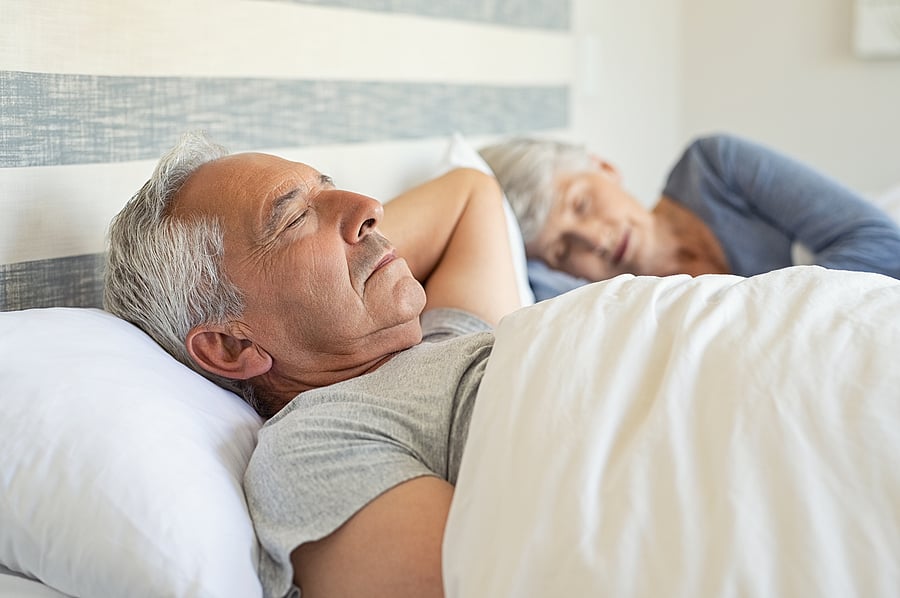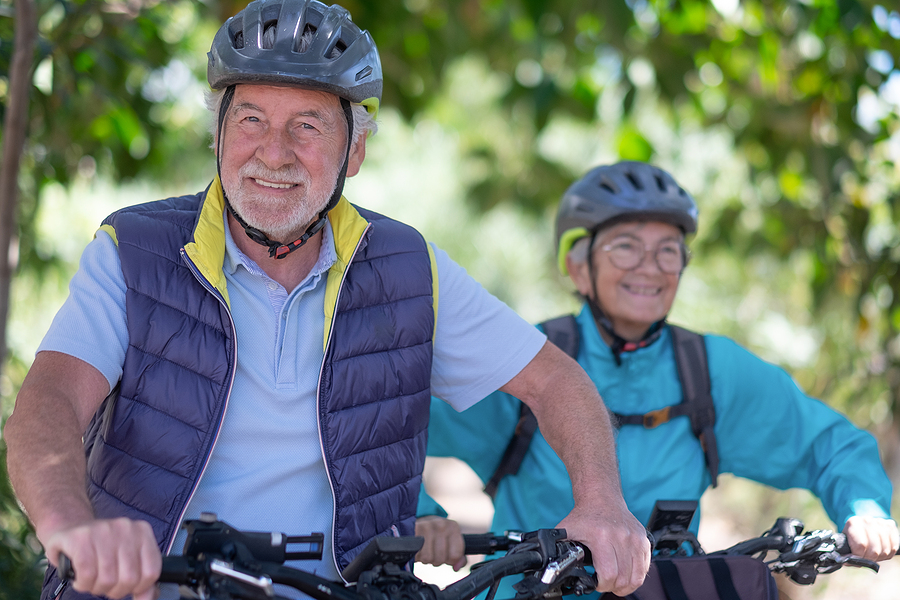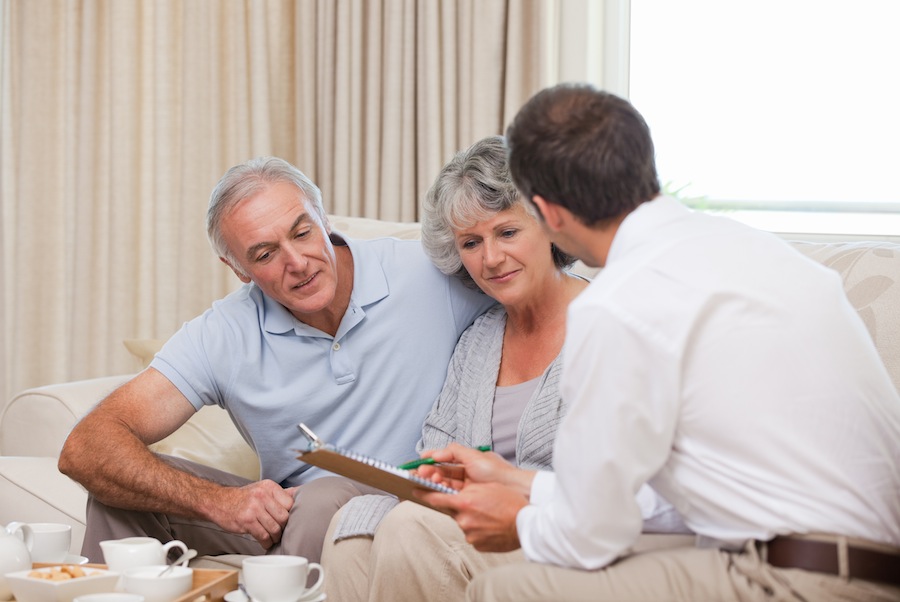
Luxury Retirement Living Sarasota
Sleeping Tips for Older Adults
- August 14 2023
- Sarasota Bay Club

Many different elements factor into living a healthy lifestyle. Nutritious diets and well-balanced exercise are only part of it. No matter what stage of life individuals are in, maintaining good sleep habits is incredibly beneficial. However, like most things in life, that can be easier said than done.
Related Blog: Journaling: A Great Exercise To Improve Your Memory
Not to mention, as the National Institute of Health has highlighted, as people age, the way they sleep changes. Fortunately, Sarasota Bay Club has gathered some helpful tips and tricks that will assist older adults in not only falling asleep but staying asleep.
Preparation is Key
Making sure bedrooms and spaces are sleep-friendly is a great place to start. Dark settings with cool temperatures will help older adults sleep through the night. Eye masks and cooling sheets are great ideas to help with this.
The National Institute of Health reviewed how being exposed to cold and heat typically affects one's circadian rhythm. Creating a comfortable sleep environment will dramatically improve the sleep and health of older adults.
Avoid Taking Naps During The Day
Everyone can relate to needing a nap, but taking naps during the day on a daily basis is incredibly detrimental to older adults' sleeping routines. This is not only disruptive to sleep schedules, but, as US San Francisco pointed out, excessive daytime naps in older adults could be a sign of Alzheimer's disease. From sticking to a schedule to putting your mind and body first, there are many reasons to not take naps during the day.
Limit Screen Time
Now more than ever, thanks to technology and the Internet, it feels like the whole world is at our fingertips. As bedtime approaches, binge-watching TV series, video calls, and mobile application games are just a few of the temptations that older adults may find themselves giving into.
With that being said, when it comes to bedtime routines, it is important to put boundaries around screen times. Sutter Health shared that, "Studies show two or more hours of screen time in the evening can seriously disrupt the melatonin surge needed to fall asleep."
Stay Consistent
Aiming to go to bed every night at the same time and wake up every morning at the same time will go a long way. As the CDC pointed out, for better or for worse, this also includes the weekends.
Exercise
Exercise is great for the body, there is no doubt about that, but older adults want to be mindful of when they are doing this. The National Institute of Health performed a clinical study that revealed almost all of the subjects' sleep improved while following a variety of exercise schedules. However, as the Sleep Foundation shared, individuals should avoid working out about three hours before they plan to go to bed.
Limit Caffeine
This one may seem a bit like a no-brainer, but many may find themselves surprised at just how long caffeine can have an effect on the body. Sleep Education reported that individuals should cut out caffeine at least six hours before they plan on going to bed. Since older adults take longer to process caffeine, the effects of caffeine in addition to lasting longer are often much stronger in older adults.
Don’t Eat a Big Meal Before Bed
When trying to establish a healthy sleep schedule, routines and consistency go hand-in-hand. In addition to potentially disrupting older adults' sleep schedules, eating big meals close to bedtime may lead to food digestion problems. Plus, over time, individuals who do this often are at risk for obesity.
Surprisingly, however, that doesn't mean all snacking is off-limits. Sleep Foundation's "Is It Bad To Eat Before Bed?" highlights the benefits that can come with having light but nutrient-dense snacks as bedtime approaches.
Enjoy all the benefits of living at a senior living community like Sarasota Bay Club, contact us today to speak with a member of our team or to schedule your own private tour.









Leave your thought here
Your email address will not be published. Required fields are marked *